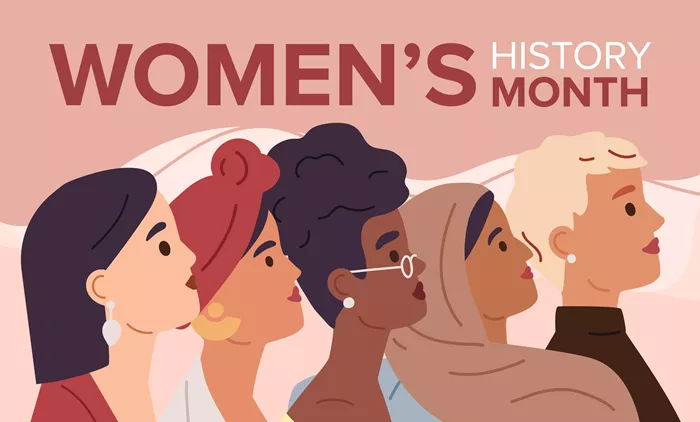Women’s History Month, celebrated annually in March, honors the contributions, achievements, and struggles of women throughout history. This article explores the diverse array of women who have left indelible marks on politics, arts, sciences, social movements, and beyond. By examining the lives and legacies of notable figures as well as lesser-known pioneers, this study aims to illuminate the breadth and depth of women’s impact on society. Through biographical narratives, historical analyses, and thematic explorations, this article seeks to inspire appreciation for the multifaceted roles women have played in shaping our shared human experience.
Introduction
Women’s History Month, designated in March each year, serves as a dedicated period to recognize and celebrate the contributions of women to society, culture, and history. From political leaders and activists to artists, scientists, and educators, women across diverse fields have challenged norms, shattered barriers, and championed progress. This article delves into the stories of these remarkable individuals, exploring their achievements, struggles against oppression, and lasting influences. By highlighting their experiences, this study aims to underscore the importance of inclusivity and recognition in understanding the full scope of human achievement.
The Evolution of Women’s History Month
Women’s History Month traces its origins to International Women’s Day, first observed in 1911, which advocated for women’s rights and equality. In the United States, the push for a dedicated month began in the 1970s as part of the women’s movement, culminating in President Jimmy Carter’s proclamation of National Women’s History Week in 1980. This week was later expanded to a month-long celebration in 1987, formally recognizing the need to highlight women’s contributions throughout history.
Political Leaders and Trailblazers
Throughout history, women have risen to prominence as political leaders, challenging societal norms and paving the way for future generations. Figures such as Cleopatra, Queen Elizabeth I, and Indira Gandhi exemplify the leadership and influence wielded by women in positions of power. Their strategies, policies, and diplomatic prowess not only shaped their respective eras but also continue to inspire contemporary discussions on gender equality and governance.
Revolutionaries and Activists
Women have long been at the forefront of social and political movements, advocating for civil rights, suffrage, labor rights, and environmental justice. From Harriet Tubman’s daring efforts in the Underground Railroad to Rosa Parks’ pivotal role in the Civil Rights Movement, and Malala Yousafzai’s advocacy for girls’ education, these activists have challenged systemic injustices and mobilized communities toward meaningful change. Their courage and resilience serve as enduring symbols of resistance and empowerment.
Innovators and Scientists
In the realms of science, technology, engineering, and mathematics (STEM), women have made groundbreaking contributions despite historical barriers. Figures such as Marie Curie, Ada Lovelace, and Rosalind Franklin advanced knowledge and innovation in their respective fields, often overcoming gender discrimination and marginalization. Their discoveries and inventions have not only expanded scientific frontiers but also inspired future generations of women to pursue careers in STEM disciplines.
Artists and Cultural Icons
Women have enriched global culture through their artistic expressions, challenging conventions and reshaping artistic landscapes. From Frida Kahlo’s evocative paintings to Maya Angelou’s poignant poetry, and Beyoncé’s transformative impact on music and performance, female artists have used their platforms to amplify voices, provoke thought, and foster cultural dialogue. Their creative legacies continue to resonate across generations, influencing artistry and cultural discourse.
Educators and Thought Leaders
Education has been a cornerstone of empowerment for women, enabling them to challenge stereotypes and expand intellectual horizons. Figures such as Mary Wollstonecraft, Maria Montessori, and bell hooks have revolutionized educational theory and practice, advocating for inclusive learning environments and equitable access to knowledge. Their scholarly contributions have shaped pedagogical approaches and promoted critical thinking skills essential for societal progress.
Challenges and Resilience
Despite significant achievements, women have faced persistent challenges, including discrimination, violence, and systemic barriers to equal opportunities. Figures such as Sojourner Truth, Susan B. Anthony, and Audre Lorde confronted these injustices head-on, advocating for women’s rights, gender equality, and social justice. Their activism and writings have galvanized movements and catalyzed policy reforms aimed at dismantling institutionalized sexism and fostering inclusive societies.
Global Perspectives and Intersectionality
Women’s experiences vary widely across cultures, regions, and identities, highlighting the importance of intersectional perspectives in understanding gender dynamics. Indigenous leaders, LGBTQ+ activists, and women from marginalized communities bring unique insights and priorities to the forefront of feminist discourse. By embracing diversity and inclusivity, Women’s History Month acknowledges the complex interplay of race, class, sexuality, and other intersecting factors that shape women’s lived experiences and societal roles.
Legacy and Inspiration
The legacies of the women celebrated during Women’s History Month resonate beyond their lifetimes, serving as beacons of courage, resilience, and determination. Their achievements inspire ongoing efforts to achieve gender equity, amplify marginalized voices, and build inclusive societies. By honoring their contributions and advocating for continued progress, Women’s History Month reaffirms the collective responsibility to create a more just and equitable world for future generations.
See also: What Is The First Day Of Pride Month?
Conclusion
Women’s History Month stands as a testament to the enduring impact of women’s contributions to society, culture, and history. Through their leadership, creativity, activism, and scholarship, women have challenged norms, expanded possibilities, and advanced human rights. This article has illuminated the diverse array of women who have shaped our world, underscoring the importance of recognition, inclusivity, and continued advocacy for gender equality. As we celebrate Women’s History Month, let us honor the past, empower the present, and inspire the future by embracing the transformative power of women’s voices and achievements.

